Case study 21: Belgium: Crop diversification through inter-farms co-operation
Cluster 5: Diversification of vegetable cropping systems
Specialisation and intensification in organic agriculture puts pressure on nutrient cycles and crop rotations. Meanwhile, mixed farms are becoming scarce in the Flemish organic sector. Can ‘inter-farm’ as a model of cooperation between specialised farms in the same region be a solution? Through cooperation, specialized farmers can mimic a mixed farming system whilst keeping a focus on their own specialisation. However, simply pooling together farmers with different needs does not work; collaboration between farmers needs facilitation to understand each other’s needs and to respond in a cooperative way. This case study investigates how to facilitate and stimulate a mindset change to enhance collaboration, for example by exchanging land, feed, and manure.
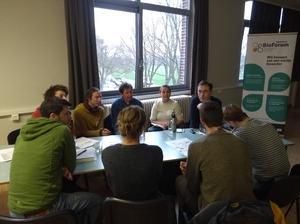
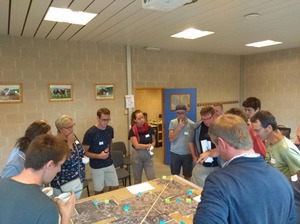
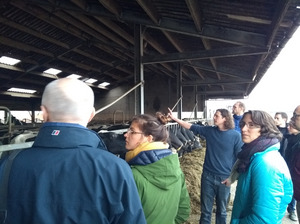
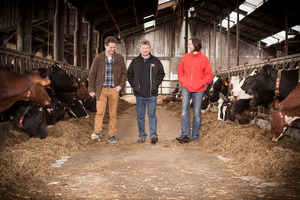
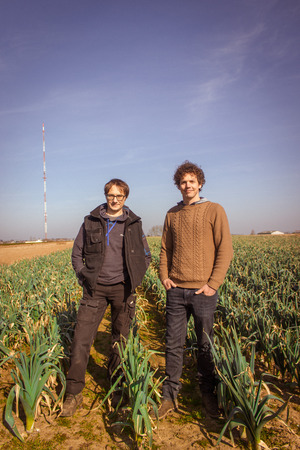
What were the main problems underlying the emergence of the case study?
In Flanders, the organic farming sector is evolving with some asymmetries: dairy production is growing, but organic arable and vegetable production is in more trouble. Cycles are short and depend too much on soil nutrient availability, which is often supplied by the livestock sector and external inputs. How do we optimize nutrient cycles through cooperation between specialised livestock and vegetable/arable farmers? Since specialised farmers operate in different sectors, they have minimal contact. Simply pooling these farmers together is not enough.
In the dairy sector, clover fatigue is observed due to improper crop rotation and grass clover monocultures. To address it, one dairy farm took the initiative to exchange parcels with a vegetable grower to improve and open rotations. Although this showed positive results and proved to be scalable, it did not address the relative prices, and the acreage amplitude was based on intuition rather than ‘scientific’ criteria. There is a need for more rigorous approaches.
How was the problem addressed and which actors were involved?
Organic and in-conversion specialised livestock farmers and vegetable/arable growers, farmers' facilitators, and technical advisors are involved. Together with John Grin & Barbara Koole from the University of Amsterdam, the Reflexive Interactive Design (RIO) methodology, which is an interactive system design method, was implemented. To reach the Flemish specialised farmers, a two-tier approach was used. On the one hand, we followed three pairs of collaborating farmers. We facilitated their communication, dug into understanding the needs of both farmers and helped the farmers improve their cooperation. On the other hand, we organized a yearly network/study day to bring together specialised farmers from different sectors to discuss topics of common interest.
Based on our first activities, distance turned out to be a very important barrier to collaboration. In 2019, we thus applied for additional funding to be able to organize regional meetings (city level). At these meetings, organic farmers could meet their organic colleagues to work around local problems. Furthermore, a brochure was created that gathers practical examples of cooperation and answers frequently asked questions about social, technical, economic, and legislative aspects.
Solution investigated
Firstly, we investigated the causes that are enabling or hindering cooperation between specialized livestock and vegetable/arable farmers. Secondly, we leveraged this information to increase cooperation in practice.
Expected outcome
The goal of the case study was to understand and find solutions for the socio-economic and practical constraints that hinder inter-farming between livestock farmers and vegetable/arable growers. At the organisational level, the objective was to learn and to exchange with other case studies about the different possibilities to enhance crop rotation and to learn about new methodologies to create positive change with groups of farmers.
Relevance to the DiverIMPACTS goals
Cooperation between specialized diary and vegetable/arable farmers, especially in the form of exchanging land or fodder production, can provide an innovative way to diversify the specialized crop rotations. It can lead to more resilient food systems, in which farmers support each other locally.
Case study legacy
First of all, this case study called attention to the topic of cooperation as a solution to problems like monotone crop rotations and external input dependency in Flanders. By spreading examples through the regional and national meetings, case study actors, videos, and the brochure, farmers and advisors have increased interest in and knowledge about cooperation. Secondly, through generating a deeper understanding of the barriers and enablers of cooperation, BioForum can now act upon this information, and support farmers better in cooperating. The findings justify further in-depth research on how legislation and administration influence cooperation. Furthermore, a follow-up project ‘Bioboeren in de Westhoek’ was established, that brings regional farmers together to cope with local problems.
Further information
Links
- bioforum.be: Site on DiverIMPACTS
- bioforum.be: Samenwerking
- inagro.be: Bioboeren in de Westhoek - Samen sterk
Case study team
- An Jamart, BioForum, case study leader
- Lieven Delanote, Inagro, case study monitor
 tap and then scroll down to the Add to Home Screen command.
tap and then scroll down to the Add to Home Screen command.